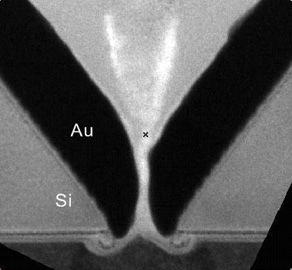Large-scale proteomics collaboration to study Alzheimer's disease
PerkinElmer, the Rush Alzheimer's Disease Center and the Buck Institute for Age Research join together
PerkinElmer, Inc. has entered into a research collaboration on the proteomics of Alzheimer's disease with the Rush Alzheimer's Disease Center and the Buck Institute for Age Research. The program focuses on identifying protein and gene targets involved in the onset and progression of Alzheimer's disease in order to enhance diagnostics and drug discovery.
The study was initiated by Dr. Simon Melov, director of genomics and one of the founding faculty members of the Buck Institute, and Dr. Mary Lopez, director of biochemistry at PerkinElmer Life and Analytical Sciences. It involves the analysis of brain tissue samples from a unique study being conducted by researchers at the Rush Alzheimer's Disease Center. The samples come from persons who have agreed to detailed annual clinical evaluations and brain donation at the time of death. These tissue samples are exceptionally valuable for the kinds of studies being conducted by the Buck Institute and PerkinElmer because they are obtained from individuals from a known environment who have undergone extensive cognitive testing and detailed clinical history close to the time of death with a complete neuropathological profile. The Buck Institute will conduct genomic studies on the tissue, and PerkinElmer will perform proteomic studies to identify differentially expressed proteins in Alzheimer's and normal human brain tissue. PerkinElmer and the Buck Institute anticipate releasing their findings in a paper to be submitted later this year.
"Comprising both gene-expression and proteomic profiling, this large-scale collaboration will undoubtedly lead to important discoveries about gene and protein expression changes in relation to Alzheimer's disease," said Melov. "PerkinElmer's advanced technology and intellectual capacity in proteomics, coupled with our extensive understanding of Alzheimer's disease, will accelerate the identification of disease-specific markers."
According to the Alzheimer's Association, approximately four million Americans suffer from Alzheimer's disease. Unless a cure or prevention is found, more than 14 million Americans will have Alzheimer's disease by the middle of the 21 st century.
"Proteomic analysis of these valuable and clinically well-documented tissue samples will allow us to identify the proteins that are associated with changes in the brain for Alzheimer's disease patients," said Peter Coggins, Ph.D., president of PerkinElmer Life and Analytical Sciences. "This will speed the development of proteomic-specific technology tools for the study of important disease-related changes." This proteomic analysis is taking place in PerkinElmer's Boston facility, and involves up to 30 scientists dedicating time to this research.
The human genome project gave us the ability to understand and know "the human blueprint" through applications such as DNA sequencing. Researchers now want to understand the assembly and function using the biological blueprint. This information is contained in the structure, location and function of proteins. Proteomics is the study of proteins and their dynamics and helps researchers to obtain the next level of understanding in their drug discovery process. The analysis of the proteome requires separation, quantification, and identification of the full complement of proteins. Identification is most commonly performed by separating proteins from a mixture utilizing prefractionation, 2D-gel electrophoresis, excision of the desired protein spot from the gel and digestion of that protein into peptides. These peptides, characteristic of any given protein, can be identified by using MALDI O-TOF mass spectrometry. Analysts expect every pharmaceutical company and biotech company will be conducting proteomics research either in-house or through collaborations with other companies or research institutes.
Other news from the department business & finance
Most read news
More news from our other portals
See the theme worlds for related content
Topic World Mass Spectrometry
Mass spectrometry enables us to detect and identify molecules and reveal their structure. Whether in chemistry, biochemistry or forensics - mass spectrometry opens up unexpected insights into the composition of our world. Immerse yourself in the fascinating world of mass spectrometry!

Topic World Mass Spectrometry
Mass spectrometry enables us to detect and identify molecules and reveal their structure. Whether in chemistry, biochemistry or forensics - mass spectrometry opens up unexpected insights into the composition of our world. Immerse yourself in the fascinating world of mass spectrometry!





















































